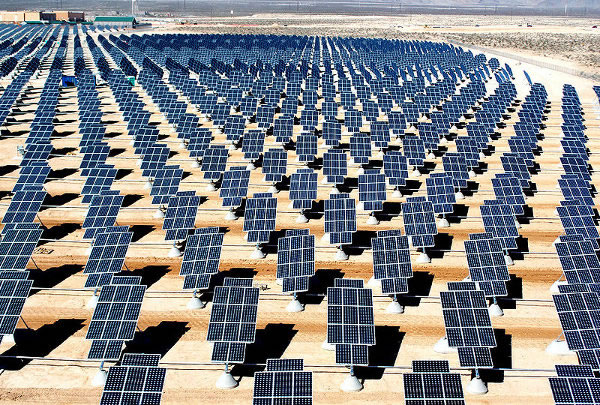Government Funding Reductions Threaten US Cleantech Dominance

Misguided policy changes in Washington are threatening US dominance in cleantech. Government subsidies and R&D grants in the US have been slashed while other countries are greatly increasing their investments. While some of that foreign money will be invested here, it also means that at least some US renewable energy companies will end up being owned or controlled by foreign interests. Short-sighted fiscal conservatives who want to reduce all government spending don’t understand that federal investments in new technologies can create entire new industries. For example, NASA invented solar panels and DARPA research led to the Internet. Both were funded by the government. All of this should be discussed during our current campaign season but unfortunately is being mostly ignored.
We are falling behind. China now leads the world in solar panel production and technology. All the big wind turbine companies, with the exception of GE, are located elsewhere and we still do not have a single offshore wind turbine at a time when other countries have hundreds.
While foreign control of US clean energy companies would not necessarily be harmful to US cleantech, the trend is unmistakable and pronounced. The collapse of a clean energy consensus in the United States means the level of funding in previous years has now virtually stopped. We are rolling back and shutting down decades of investments in renewables at the precise moment that countries like the UK, China, Saudi Arabia, India, and Indonesia are ramping up such investments. Third Way details the decline of American clean tech in Fire Sale: The End of American Ownership of Clean Energy saying that Congress has turned its back on history.
Other countries are not making that mistake and instead are investing heavily in cleantech.
The United Kingdom, for example, has established a £15 billion Green Bank. The China Development Bank has made available $32 billion in low-interest credit facilities to Chinese solar and wind companies. Saudi Arabia wants to raise $109 billion for its solar industry. Indonesia outpaced the rest of the world with a massive 521% growth rate in 2011. India was the second fastest growing clean energy market in the world in 2011, rising 52% to $10.2 billion.
But here in the States, the seminal and important Advanced Research Projects Agency –Energy has had funding slashed so drastically that it is equal to a “medium-sized venture capital fund.” This is happening at a time when government tax policy and subsidies continued mostly unabated into coal, gas, and oil.
There is absolutely nothing wrong with foreign investment in the U.S. In fact, it is a vote of confidence that America will develop a strong domestic clean energy market. It also creates American jobs and tax revenues. But why is it that foreign investors are dominating a sector of the American economy that in many cases we invented?



